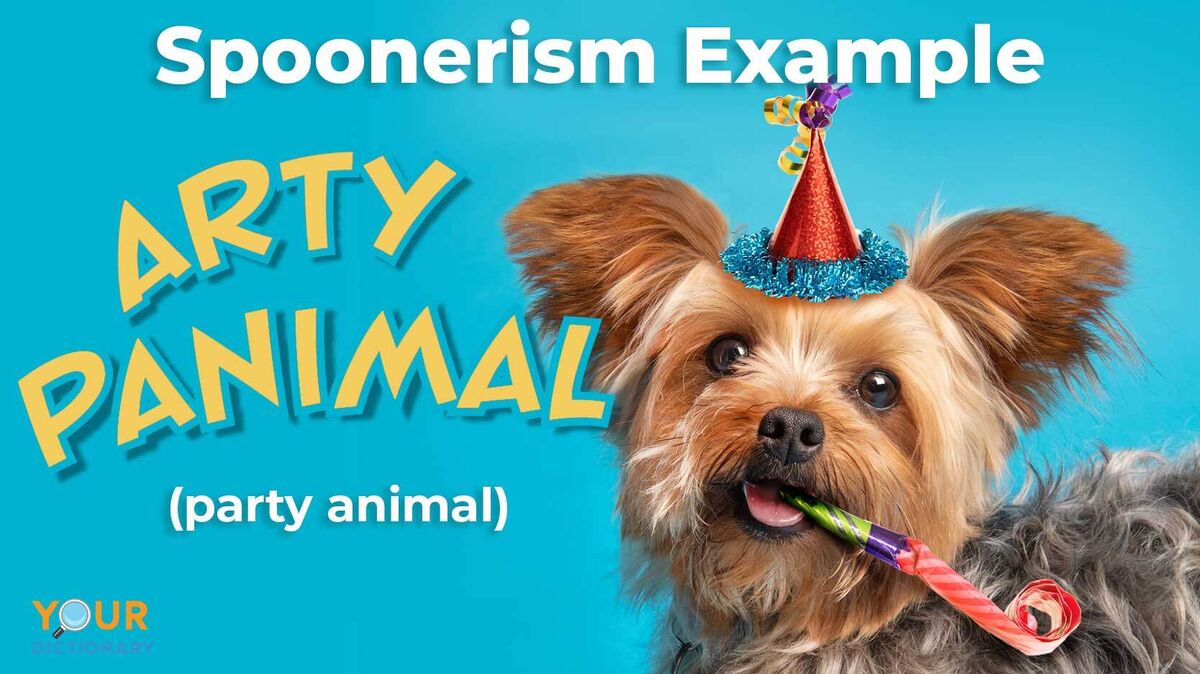
If you've ever accidentally mixed up the sounds of letters or syllables from one word to another when trying to utter a phrase, you've committed a spoonerism. Technically linguistic errors, spoonerisms occur quite frequently in everyday conversation. Discover a selection of interesting and entertaining spoonerism examples.
The Origin of Spoonerisms
Spoonerisms are named after a British professor who is believed to have had a tendency to mix up his words — or wix up his mords. The Reverend Archibald Spooner (1844-1939) was an esteemed English language scholar who served for more than 20 years in a leadership role at Oxford's New College.
While some say that Spooner frequently transposed segments of words, others claim that he actually did this only once, publicly uttering "kinkering kongs” instead of "conquering kings" while speaking at a worship service. Whichever version is true, or if the truth lies somewhere between the two extremes, the term spoonerism has long been used to describe this particular type of linguistic mistake.
Funny Spoonerism Examples
While people sometimes utter spoonerisms on purpose, they quite often occur accidentally, as a slip of the tongue.
Two-Word Spoonerism Examples
Some spoonerisms include only two words.
- arty panimal (party animal)
- bad salad (sad ballad)
- blarm wanket (warm blanket)
- belly jeans (jelly beans)
- birty dirds (dirty birds)
- bunch luffet (lunch buffet)
- brunday sunch (Sunday brunch)
- cakeing bookies (baking cookies)
- chide fricken (fried chicken)
- chork pops (pork chops)
- dakeing minner (making dinner)
- doggy fay (foggy day)
- frest bend (best friend)
- pit nicking (nit picking)
- plaster man (master plan)
- poobarb rye (rhubarb pie)
- praiser linter (laser printer)
- sark died (dark side)
- sennis thoos (tennis shoes)
- tapter chest (chapter test)
- tars and crucks (cars and trucks)
- tot he (hot tea)
- treach bip (beach trip)
- welling spurds (spelling words)
- wise prinning (prize winning)
Longer Spoonerism Phrases
Some spoonerisms are longer phrases, with three or more words.
- bot hog duns (hot dog buns)
- cakeing a bake (baking a cake)
- chewing the doors (doing the chores)
- cake the tase (take the case)
- cogs and dats (dogs and cats)
- det the pog (pet the dog)
- deeding the fog (feeding the dog)
- doe on a gate (go on a date)
- fake a mew nend (make a new friend)
- gigging for dold (digging for gold)
- glock of fees (flock of geese)
- hails of bay (bails of hay)
- heart before the course (cart before the horse)
- lell a tie (tell a lie)
- low my blows (blow my nose)
- lundering for ploot (plundering for loot)
- munning his routh (running his mouth)
- plume where you're blanted (bloom where you're planted)
- ravel the twirled (travel the world)
- reamed so seal (seemed so real)
- rut a cug (cut a rug)
- shake a tower (take a shower)
- sod rest her goul (God rest her soul)
- sothers and bristers (brothers and sisters)
- track of all jades (jack of all trades)
Literary Spoonerism Examples
Authors sometimes intentionally use spoonerisms as a literary device to introduce humor into their work. The names of authors or characters in works of literature are sometimes accidentally (or on purpose) expressed as spoonerisms.
- Ate Grexpectations (Great Expectations)
- Bleeping Sooty (Sleeping Beauty)
- Ford of the Lies (Lord of the Flies)
- Ring Kitchard III (King Richard III)
- Shilliam Wakespeare (William Shakespeare)
- The Bree Thayers (The Three Bears)
- Twark Main (Mark Twain)
Fun With Linguistic Mistakes
If you're entertained by spoonerisms, don't stop there. Explore some other linguistic mistakes that add a bit of fun to spoken language. Start by exploring some eggcorn examples. From there, expand your insight into similar errors by discovering some examples of malapropisms. Not only will you learn about language and literary devices, but you'll also enjoy a few laughs along the way.